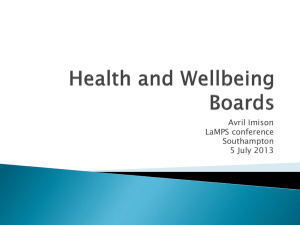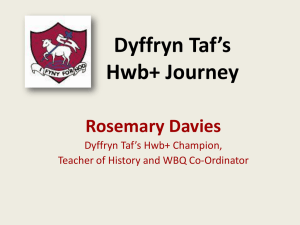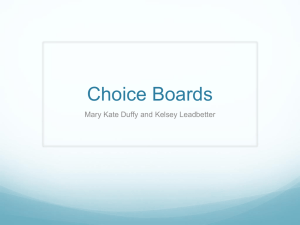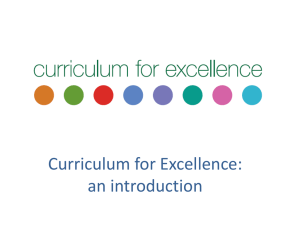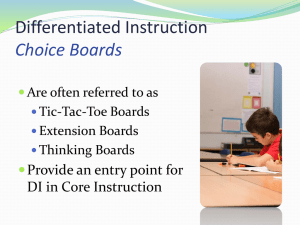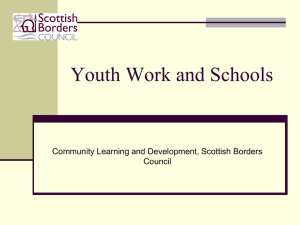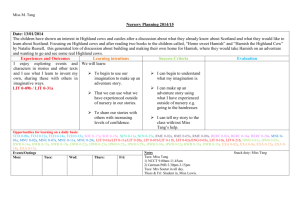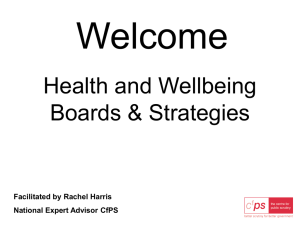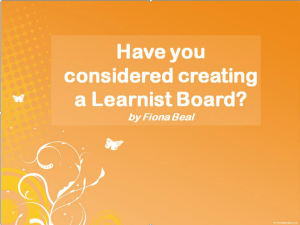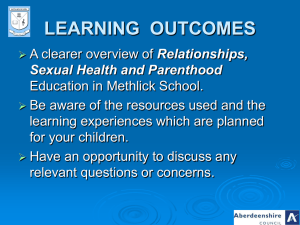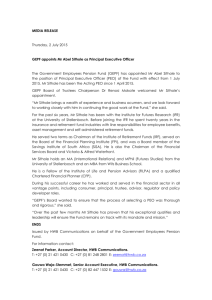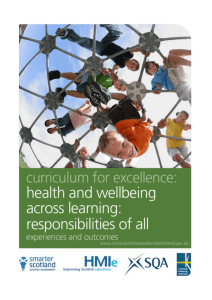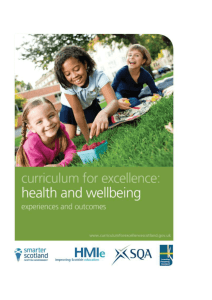Slide set for further information
advertisement
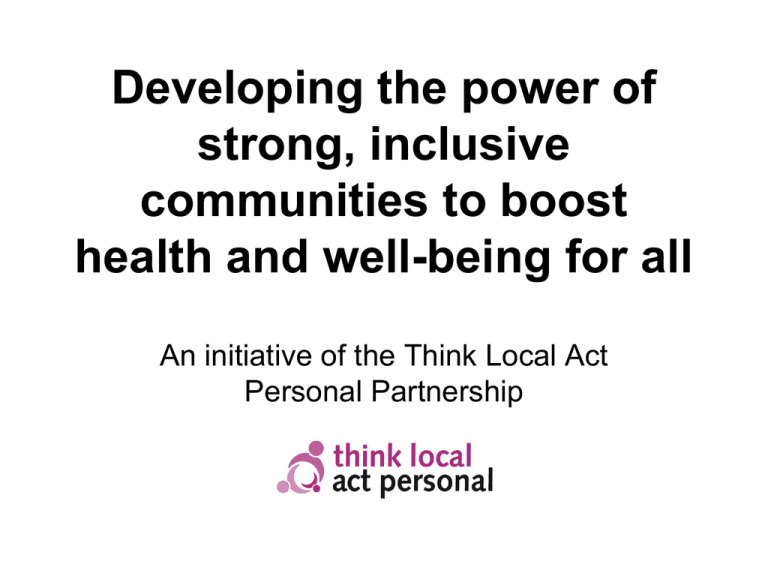
Developing the power of strong, inclusive communities to boost health and well-being for all An initiative of the Think Local Act Personal Partnership The Building Community Capacity Project Initially (from 2009) to help build social capital into strategies for transforming social care Activity • Working together and sharing learning: 20 places have helped to shape this • Spreading best practice - 50 case studies • Website at www.thinklocalactpersonal.org.uk/BCC • Some work on measuring social capital and cost effectiveness Next - support HWB boards • Encourage and help health and well-being boards to support the inclusion and maximise the contribution of older and disabled people in local communities • Support HWB boards to help people avoid delay or reduce unnecessary use of acute/long term health and social care via building social capital Approach • October: Provide HWBs with a draft framework for strategy and activity to build social capital, linking to examples and evidence • Oct-April: Support an exemplar group of HWBs to use the draft framework/its elements in developing and implementing local plans • Work in synergy with other initiatives and offers (LGA, regional networks etc.) Approach • Share developing learning via webresources, regional HWB and personalisation networks, work with Public Health England • April Finalise and disseminate framework via DH (Active Communities Development Group), LGA etc. • 2014/5 subject to resources phase 2: further delivery support via regional networks and programmes Work with Exemplars • Recruit 6-12 HWBs (by October) • Local facilitated and co-productive review and planning session using framework and TLAP tools in context of local HWB strategy • Local use of agreed level of consultancy support based on initial plan • Evidence support via LSE • Facilitate peer support • Web-based forum for exchange and good practice • Work in other TLAP and partner offers • Regional elements? Expectations • Exemplar HWBs will sign up at cross agency senior level to use the framework co-productively and incorporate elements into local strategy • HWBs will cover local costs (venues etc.) • Action agreed at planning session will take place October-April • Outcomes and activity reported into programme by April 2014 The draft framework Developed by Clive Miller and Catherine Wilton Scope: a strengths and asset based approach Focus and format of a framework Focus • Enabling the development of strong and inclusive communities and the importance of this as an integral part of Health and Wellbeing Strategies • The benefits of re-designing and tailoring public services so that professional expertise complements people’s own lived experience • The critical role that Heath and Wellbeing Boards can play in enabling more effective coproduction of outcomes • Signposting evidence and examples of the community based approach Format • Web based • Use of links – to enable the framework to be of use to both novices and those with experience in community capacity building and coproduction Key contents Section 1: Making the case for a strengths and assets based approach to boosting Health and Well Being A. Explaining – the asset based approach to community development and the strengths based approach to effective coproductive service redesign B. The evidence – improvements in health and well being and consequent savings from investment C. Key policy drivers and initiatives – to enable the new approach including: the care and Support Bill; TLAP’s Making It Real; the National Collaboration for Integrated Care and Support. Section 2: What Health and Wellbeing Boards can do A. Focus on both assets and needs – e.g. use of bottom up community asset mapping processes to inform JSNAs. B. Provide community and cross-sector leadership - to challenge and change current practice within their own sectors and work across sectors. C. Promoting a vision and shaping the strategy – using Making It Real’s ‘I’ statements; building the strengths and assets approach into all aspect of the core agenda of the HWB. D. Shape priorities around building stronger communities and maximising co-production – the priority criteria HWBs might use to decide when, where and in what to invest to enable the new approach. E. Co-ordinate cross-sector investment – and invest in portfolios of approaches that both deliver the improved outcomes and net out gains across sectors. F. Evaluate and share the learning – in terms of improved outcomes and lived experience; culture change and savings
